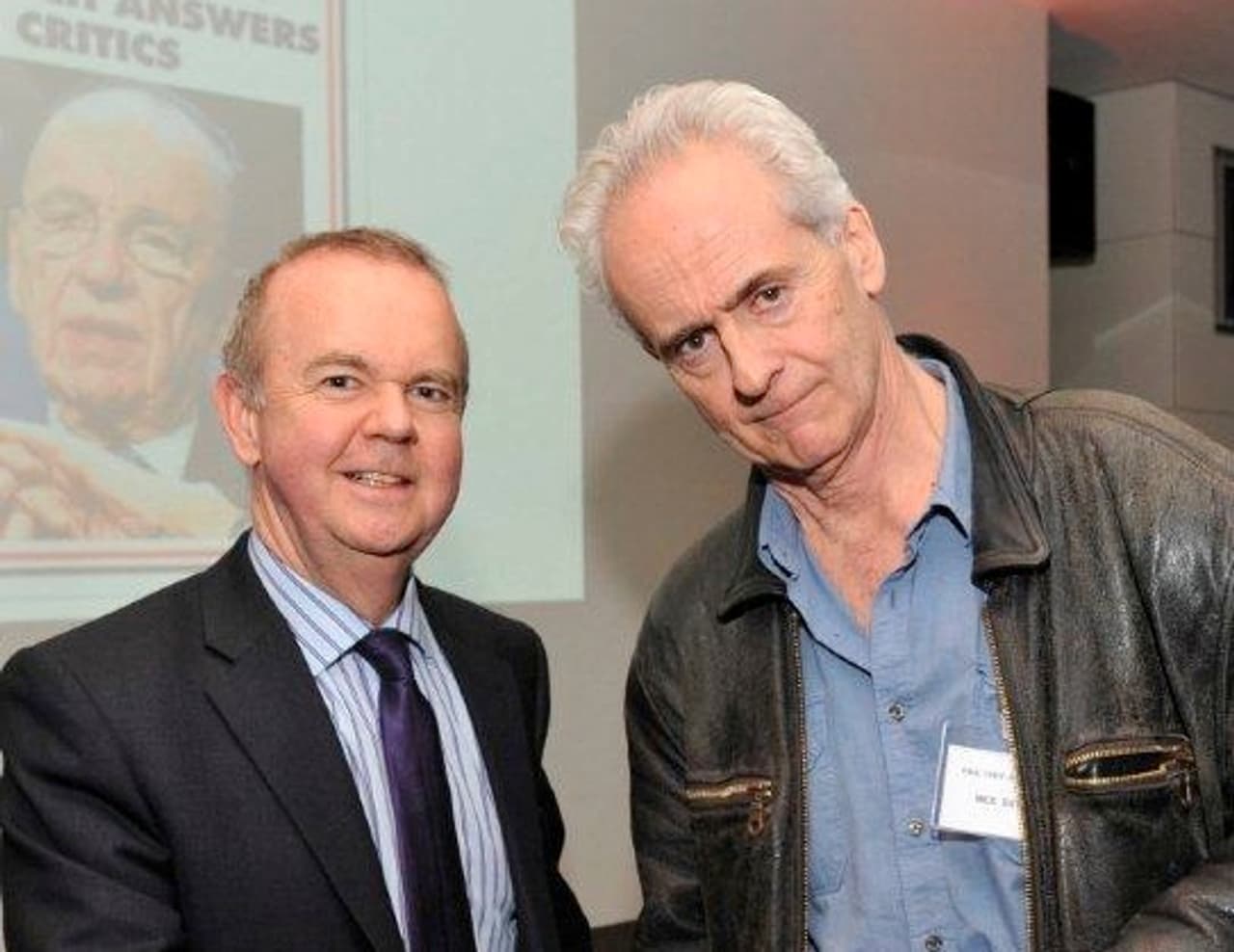
Nick Davies wins Paul Foot Award for hacking investigation
Private Eye editor Ian Hislop with the Guardian’s Nick Davies
The Guardian’s Nick Davies has won the Paul Foot Award with his investigation into phone-hacking, in particular the revelation that murdered teenager Milly Dowler had been targeted by News International. He was shortlisted for the same investigation last year.
The awards are run by Private Eye and the Guardian to recognise ‘extraordinary achievement’ in campaigning journalism. They commemorate the investigative journalist Paul Foot, who died in 2004.
Ian Hislop, the editor of Private Eye, said this year’s awards were intended to be ‘anti-Leveson’, celebrating the type of journalism that requires ‘persistence, doggedness, patience, a belief in yourself and an ability not to be knocked back’.
Speaking to the Bureau after collecting his award, Nick Davies said: ‘This is the most important award to win – probably because Paul Foot did this endless sequence of great investigations. He was an honest guy, driven by passionate feelings about justice, social justice and individual justice.
‘He never needed to learn how to be a reporter: he had this enormous drive to uncover injustice. He was clever, and charming, and there will never be another reporter like him.’
The runners-up were Claire Newell and Jonathan Calvert of the Sunday Times’s Insight team, for their undercover investigation exposing systematic corruption in contests to host the Fifa World Cup. Their undercover investigation prompted Fifa to change the way it decides host sites in the future.
The shortlist featured projects from across trade, local media and national papers.
Jon Austin of the Basildon Echo was shortlisted for his coverage of the Dale Farm evictions, which revealed the huge cost of the eviction, the site chief’s request for £6m to leave quietly, and the fact that over half the Dale Farm residents were being paid housing benefit to live illegally on the site.
Zoe Smeaton, writing for Chemist + Druggist Magazine, is shortlisted for the ‘Fight For Fairness’ campaign, which followed up on reports from readers of community pharmacists experiencing considerable payment errors by NHS government agencies.
Smeaton told the Bureau: ‘Being on the Paul Foot Award shortlist was a real honour, especially given the competition this year. It was great to see the trade press on the list and it made all the long hours the Chemist + Druggist team put into the investigation well worth it.’
Mail on Sunday reporter David Rose was shortlisted for an investigation revealing significant problems with the UK’s aid spending in India, published in the Mail on Sunday’s Live supplement.
New names to the competition included Katharine Quarmby, credited by the judging panel as being the ‘first British journalist’ to investigate disability hate crime. Working as both an investigative journalist and joint coordinator of the disability hate crime network, Quarmby has led a four-year campaign and written over 40 articles to raise awareness of the issue.
A groundbreaking campaign to allow the press into the Court of Protection earned Jerome Taylor of the Independent a place on the shortlist. Vital decisions over vulnerable people’s lives are taken in the Court of Protection, and this year the Independent became the first media organisation to be granted access to a Court of Protection case, thanks to Taylor’s campaign.
Mark Townsend of the Observer completed the shortlist with a powerful series of articles on modern slavery, focusing on women and children being exploited for prostitution. The articles exposed cases of children going missing from care – at a time when crucial protections were on the verge of being removed by changes in the laws. They also highlighted how government cuts were affecting vital services for trafficked women.
Townsend said to the Bureau: ‘The idea was to present human trafficking in a fresh way, tracking down the cases of children who have gone missing but also the care homes from where they disappeared gave the issue both a human face, while identifying the failures of the state to protect these youngsters. It was an honour to be recognised.’




